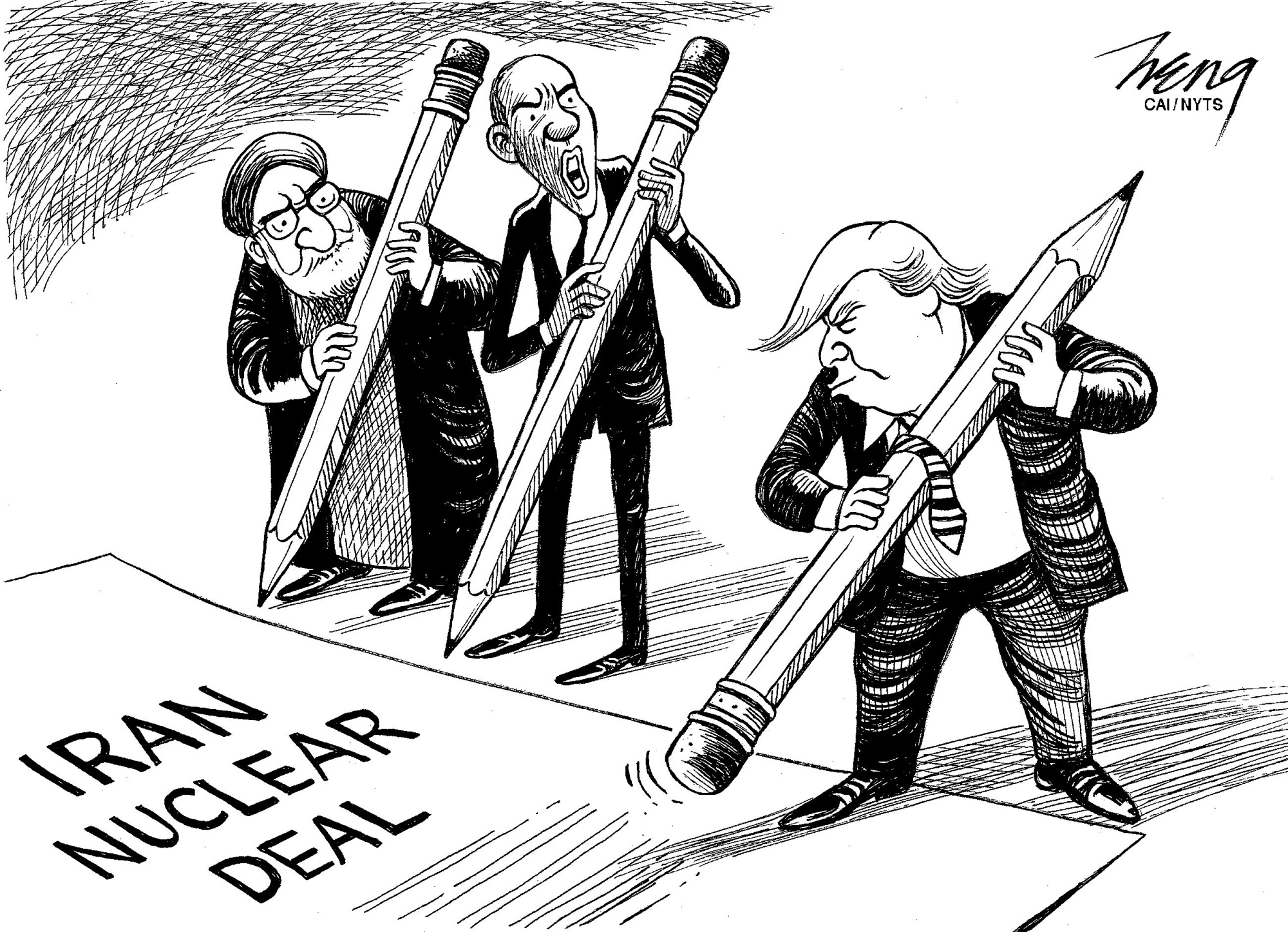The United States and Iran have rarely agreed on how to proceed with nuclear talks or other elements of their bilateral relations. But synergies and similarities between two factions — Iranian hardliners and the hawks of the current U.S. administration — are as counterintuitive as they are profound. Indeed, Donald Trump's new Iran strategy has given radicals in Tehran reason to celebrate, as they have found in the U.S. president an unwitting ally in their quest for political dominance.
For years, Iran's "conservative radicals" — a concept that combines extreme conservatism in matters of faith and philosophy with radical views on violence — have argued that negotiation and rapprochement with the U.S. are foolish and futile. The U.S., these hardliners believe, is interested only in regime change, and to fight Islam in the region.
This view has led Iran to align more closely with Russia and China. But as crippling nuclear-related sanctions in recent years brought the Iranian economy to the verge of collapse, Iran's conservatives were forced to negotiate in good faith with the international community.



















With your current subscription plan you can comment on stories. However, before writing your first comment, please create a display name in the Profile section of your subscriber account page.